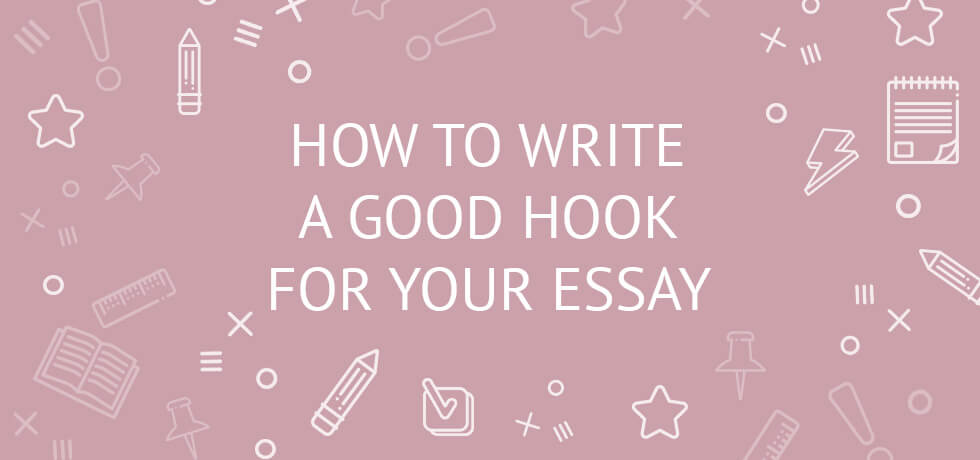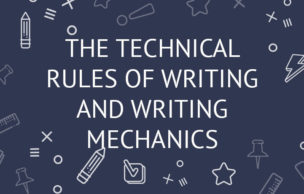How to Write a Good Hook for Your Essay

Creating a hook for your essay is one of the most important factors of writing. Whether you are writing short or long essays, you want to capture the attention of your reader. Essays should not be boring, so the goal is to make your reader actually WANT to read more. This is important as even the most interesting topics can lose their touch when there is no hook. This is why hooks can be such an effective tool.
Hooking your audience is not only used in analytical essays, but in creative writing, screenwriting, and books. Many famous authors have used hooks to draw readers so that they would keep reading. Here are just a few examples of hooks used throughout famous literature:
“It was a pleasure to burn.”
—Ray Bradbury, Fahrenheit 451
“If you’re going to read this, don’t bother.”
—Chuck Palahniuk, Choke
“If you really want to hear about it, the first thing you’ll probably want to know is where I was born, and what my lousy childhood was like, and how my parents were occupied and all before they had me, and all that David Copperfield kind of [stuff], but I don’t feel like going into it, if you want to know the truth.”
—J.D. Salinger, The Catcher in the Rye
College and high school essays, although can be difficult, need a hook. Usually, this will come at the beginning of your essay, in your introductory paragraph. This should clarify your topic while still remaining interesting to the reader. The easiest way to begin thinking of hooks is to do an outline. Look at your entire essay and ask yourself these questions:
- What essay am I writing?
- Who is my audience?
- What tone is appropriate?
- What are my requirements?
- How should I structure this essay?
Here are some hook ideas that can be implemented into your essay
1. Quotes
You can use these types of hooks when discussing literature including essays, books, authors, short stories, fables, etc. Starting off with a quote should convey the meaning of the rest of your topic in an exciting manner. Just having a quote from the literature won't work. Make sure it works well with your thesis statement, which is a statement that conveys your ideas in one or two sentences. For example, if you are writing an essay on the importance of the seasons in F. Scott Fitzgerald's The Great Gatsby, you might say:
“Life starts all over again when it gets crisp in the fall”. These words by F. Scott Fitzgerald….
Or if you are writing an analytical essay over Romeo and Juliet, you might say:
William Shakespeare said it best when he started his most infamous play “For never was a story of more woe than this of Juliet and her Romeo.” These words never were more true as……
Quotes don't just have to be from the literary work itself. Many times, quoting the author or other influential people can be very helpful for creating a hook. Again, quoting from a person should align with your topic and the thesis of your essay. Don't use quotes that are irrelevant as they can convolute your arguments. If you are writing on Buddhism and its religious aspects, you might start off:
The Dalai Lama once said “My religion is very simple. My religion is kindness.”
Sometimes finding the right quote can be difficult, but your time researching will be paid off with an intriguing hook.
2. Questions
One of the most widely used hooks in essay writing is to ask a question. A well-constructed opener will ask your reader a question and make him/her want to find out the answer. Make sure your question is complex enough to not be answered with a simple "yes" or "no." These questions can even sometimes have no right answer. Your job to simply analyze the question to the best of your knowledge while engaging the reader in critical thinking. For example, if you are writing a topic on the marijuana and its impact in the United States, you might ask:
Are drugs stimulating to an economy? This question has continued to resurface in America as the legalization of marijuana…..
These types of hooks can be used in a vast amount of essay topics.
3. Anecdote
These types of hooks can be used in more informal writing. They can especially be used to start a self-reflection essay or a bibliography. An anecdote should be a short and interesting story pertaining to your topic that stresses a human emotion. Many times in writing this will be humorous, but don't be afraid to use other strong emotions such as sadness. Anecdotes can spark your reader's interest by bringing the writer on a more personal level. If you are writing about the dangers of laid-back parenting, you could write:
Running around in my neighborhood and getting into mischief was easy. As long as we were home before dark, our parents really never worried where we were. With this kind of easygoing parenting, my brother and I were able to learn from our environment…….
Or if you are writing a comparison on stay-at-home parents vs. working parents, you could add:
My parents were never around. Both of them had multiple, full-time jobs. Because of this, I had to grow up quickly, and I trusted no one. These types of characteristics can be found in many at-risk young adults……
4. Facts
These hooks are used for more analytical essays or essays that deal with large amounts of information. An interesting fact should pertain to your topic and intrigue the reader. Providing the fact could surprise the reader with something they did not know or make them ask questions in their head. Many times these will be used throughout the bodies of your paragraphs, but when used correctly, can also be effective in the introduction. If you are writing a paper off of the 2008 financial crisis, you can start off:
As more than half the world lost 19.2 trillion dollars, 2008 was the worst year for financial companies.
5. Create a Scene
Some audiences can be visual learners and do better when the author paints a picture of the scene. As a writer, this can help create a clear image for the reader while establishing your topic. Describing the scene in detail is key for an effective hook. This could be a particular character and their features or a place and its surroundings. If you are trying to immerse the reader in a topic such as pollution, you might begin the essay like this:
There was a lake that once was beautiful. It was where the neighborhood kids would gather and swim during the summer or ice skate during the winter. Now, it's filled with trash. Bottles float on the surface, bags of trash underneath the murky water that smells when you get too close. These effects of pollution…..
6. Revealing Misconceptions
Much like stating a fact, revealing a misconception can help surprise the reader and grab their attention. This can be done by taking a commonly accepted idea and giving contradictory evidence. By shattering the audience's common beliefs, this can instantly hook the reader by teaching them something new. For example, if you are writing about the similarities and differences between general living now and the middle ages, you can say:
Many people believe life expectancy for the Middle Ages was early, around 30 years of age when actually it was around the age of 64. Middle ages have higher infant mortality rates, but many people who would make it into adulthood lived a long time.
7. Thesis Statement
Lastly, you can always start with your thesis statement. This should be one to two sentences that summarize the main arguments of your paper. Thesis statements act as a hook to show the readers your ideas first. This is usually used in a college-level essay or high-level analytical essays. One way in which a thesis can be written is to take your ideas and split them based on your essay structure. This acts as a way to show the readers your exact arguments in the following paragraphs. If you are writing a topic on the effects of milk on the growth of children, you might have a thesis that says:
Milk has many benefits for children including high calcium, vitamins & minerals, and has shown positive effects on long-term heart disease.
Going this route makes planning your outline that much more important.
Depending on the style of your essay, your requirements, and the formality involved will be which hook you should use. Remember, the hook is just the beginning of your essay, but it can still be a critical point. A truly good hook can make your writing interesting for anyone to read.
Finally, if you are little experience designing hooks - or writing essays in general - do not forget that there are plenty of essay writing services (including ours) that can help you. This can save you both time and trouble; not to mention, improve your academic result.





